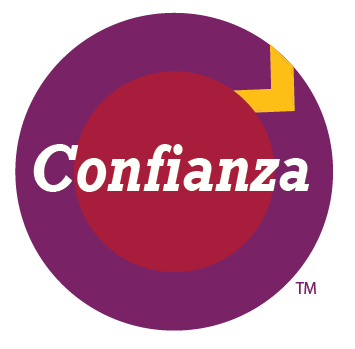Partnering to Increase Climate Change Awareness and ELL Achievement in Boston Public Schools
by Sarah Ottow
In Spring 2016, the United Nations Association of Greater Boston (UNAGB) and Confianza: Educating for ELL Equity formed a collaboration for an EdVestors Seed Fund grant in the Boston Public Schools to create a new approach to student learning and teacher leadership: the creation of a language rich and cognitively rigorous unit of study that served as a catalyst for a teacher developed and teacher lead initiative in language and literacy for English Language Learners (ELLs).
The Challenge: Josiah Quincy Lower School teacher Matt Lydon, dually certified in ESL and general education, knows well how critical it is for his ELL students to develop their language production skills. At the same time, he sees that as early adolescents, his students are beginning to take fewer risks speaking up in class as they become more uneasily socially aware. In his own words, “This is an advanced work class; what holds most of the students back is speaking and writing in English.”
Challenging any student to speak in class for an extended period of time, in complete sentences, and using accurate evidence acquired from text is no easy task. Doing so requires skill and expertise on the part of the teacher as well as a curriculum that inspires and excites students to participate. When asked how long students will engage in an extended discussion of text, Lydon’s answer is simple: “It depends, how interested are they in the topic?” The Model UN unit presented a high-interest complex set of themes and processes through which students could participate and build their academic language skills.
The Collaboration: Matt Lydon, 5th grade teacher at Josiah Quincy Lower School, with the support of Caitlin Moore, Education Director at the United Nations Association of Greater Boston, taught UNAGB’s dynamic social studies unit focused on climate change. Sarah Ottow, ELL specialist from Confianza: Educating for ELL Equity, brought in a “language lens” to the project by creating tools geared to boost academic language development that aligned with the school goals of evidence based writing set by Principal Cynthia Soo Hoo. The end-of-unit Model UN simulation event was held at Suffolk Law School for families and community members. There students showcased their cognitively rich public speaking skills as they simulated delegates representing countries around the world at a committee meeting of the United Nations.
The Unit of Study: Model UN
An engaging, global, real world learning experience
The Model UN approach is particularly motivating because it draws on the richness of diverse global perspectives, engaging all students to share their views and to learn about relevant issues affecting the world. And because the final simulation is a role-play, students are more likely to take risks in public speaking.
Through Model UN’s unique features of role play simulation, focused collaboration, and global issues that resonate locally, students persevered, took risks and built their confidence with research, informational writing and public speaking tasks. The rigorous academic and 21st century skills learned benefited all students in the class. As one student in Mr. Lydon’s class explained after the simulation event, “I learned how delegates in the real UN solve issues in the world that we normally don’t think about. That really taught me how to improve the environment.”
The Teacher Leadership Initiative:
Impact beyond the walls of one classroom
After the unit was taught, Mr. Lydon and Ms. Ottow co-planned the professional development that Mr. Lydon led for the 5th grade team. The goal was to share the outcomes of the Model UN unit and share the specific language strategies that worked for his student and could be shared with the entire team. Matt stressed that using academic conversations is a practice that can happen across the curriculum and can help students connect speaking to writing skills. The school’s principal, Cynthia Soo Hoo was consulted throughout this project to ensure that this professional learning aligned with the school improvement goal of boosting informational writing skills across all grade levels.
Transferable Practices: Sharing what works
To support the project, Ms. Ottow developed two ELL “Adjustable Practices Protocols”, one to address oral language through academic conversations and one for close reading through annotating text across the curriculum. Because ELLs benefit from consistent, explicit practices that are meaningful and language-rich, these protocols were designed not just to be used in the climate change unit but to be promoted across the 5th grade and potentially the school. After having taught the unit, Mr. Lydon shared his experiences with the protocols with his grade level colleagues. The team then collaboratively planned to boost students’ evidence-based writing skills by making language more visible through explicit academic conversations. Principal Cynthia Soo Hoo anticipates using these practices across the entire Josiah Quincy Lower School to build systemic practices supporting ELLs’ language development from grade to grade. The partnership was fruitful with seeds planted for continued rigorous language and literacy practices that promote risk-taking through meaningful instruction for English Language Learners and for all students.
Language graphic from http://4.bp.blogspot.com/-dhO5xi1cWq8/VjyucU1s6TI/AAAAAAAABrk/Z_NPqd4IZNQ/s640/skills.png

